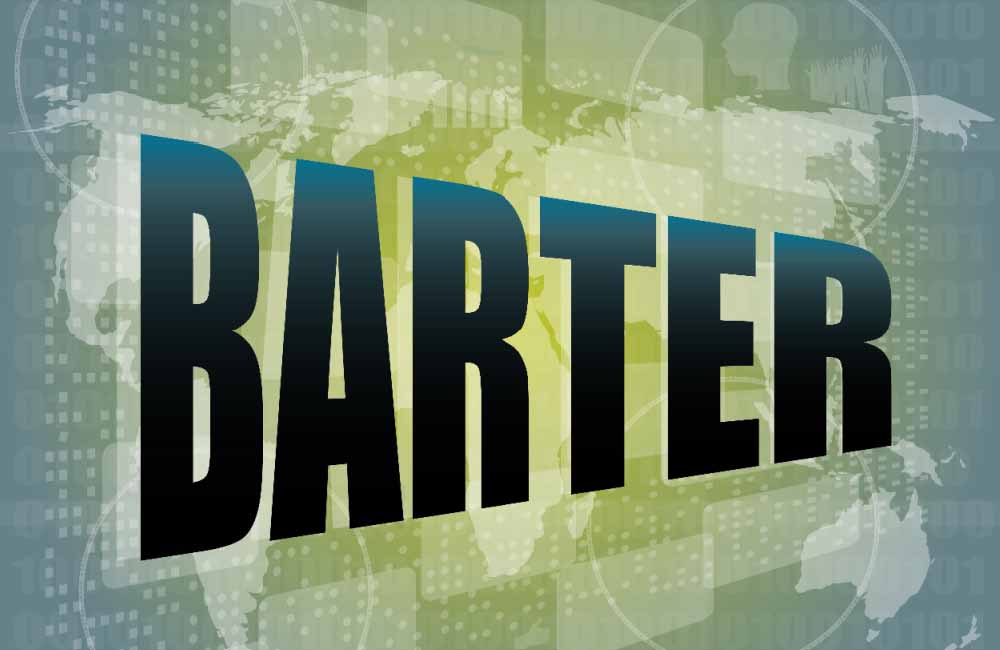Human civilization started with barter systems, and it worked well for many centuries. For smart preppers, it’s beneficial to plan for the possibility that the world could go back to a barter system at some point.
One of the issues driving revived talk of the return of barter over cash is rampant inflation. In the past few years, inflationary pressures have driven up the cost of every type of item, including the costs of food and shelter. It’s made the barter system, where people agree on a fair exchange of value without using currency, seem more attractive.
As noted by Backyard Farming Supply, “Although cash works just fine for most of us, cash is also susceptible to inflation—bartering offers a way to dodge those pesky price increases.”
Just like people need the right tools to help them survive a grid down scenario, so too should they prepare for the possibility of a post-cash society.
The Potential Disappearance of Cash
In a world where technology evolves at an unprecedented pace, the concept of a post-cash society is no longer relegated to the realm of science fiction. It’s worth delving into the intriguing possibilities that a cashless future holds, and perhaps, the unexpected resurgence of age-old barter systems.
The disappearance of physical currency might seem like a distant vision, but the seeds of this transformation have already been sown. With the rise of digital payment systems, cryptocurrencies, and the increasing prevalence of contactless transactions, the reliance on cash has steadily diminished.
The past year has witnessed an acceleration of this trend, with many societies embracing the convenience and efficiency of cashless transactions. One of the most significant advantages of a post-cash world is the potential for financial inclusivity. In a digital landscape, even those without traditional banking services can participate in economic transactions, fostering a more inclusive global economy.
Mobile payment platforms and digital wallets have become great equalizers, breaking down barriers and empowering individuals in remote corners of the globe. However, others fear an over-reliance on technology could lead to a potential financial system collapse.
The Potential Return of the Barter System
Once nothing more than a relic of ancient economies, barter systems are making a surprising comeback. In the absence of tangible bills and coins, people are rediscovering the value of goods and services as direct forms of exchange.
Imagine a world where farmers trade freshly harvested apples directly with a mechanic for car repair service, leaving behind the need for intermediary currency. It’s an idea that could result in a more localized and sustainable economy, where communities rely on inherent skills and resources to meet their needs.
Barter systems also have the potential to foster a stronger sense of community. In a cashless society, individuals would interact more directly with their neighbors, fostering relationships and building trust. The exchange of goods and services becomes a social transaction, as opposed to the impersonal nature of digital transactions.
However, the road to a post-cash world and the renaissance of barter systems is not without challenges. Privacy concerns, technological disparities, and the need for robust cybersecurity measures are paramount. A delicate balance must be struck between the convenience of a cashless society and the protection of an individual’s privacy and security.
There would be psychological issues, as well. Shifting from a currency-driven mindset to a barter-based one requires a fundamental change in societal attitudes. Education and awareness campaigns would play a crucial role in helping people adapt to these new economic paradigms, fostering a mindset that values goods and services over numerical representations of wealth.
The prospect of a return to barter systems presents a fascinating twist in the narrative of economic evolution. It’s one that values the richness of human connection over the digital numbers in a bank account and showcases the resilience of communities coming together to thrive in the absence of physical cash.







Leave A Comment